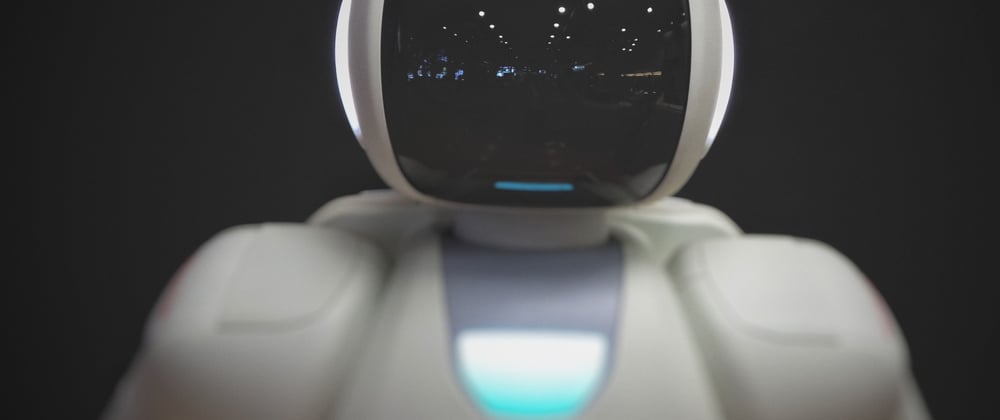This article was originally published on my blog
Intro
Artificial intelligence (AI) needs mostly two things to work its magic: data and computing power. Since the beginning of the 21st century we’ve been amassing an astonishing amount of data and we definitely we are not slowing down the pace. According to a report from DOMO “over 2.5 quintillion bytes of data are created every single day, and it’s only going to grow from there. By 2020, it’s estimated that 1.7MB of data will be created every second for every person on earth.” That’s really hard to fathom.
Regarding computing power, Moore’s law is still standing and we’ve been seeing faster computers every year. If you add on top of that algorithmic improvements then is no wonder that AI started to yield great results. A significant milestone in the development of AI is the triumph of AlphaGo (a computer program that plays the board game Go) in 2017 against Ke Jie (who at the time continuously held the world No 1 ranking for two years).
Real world examples of AI
Now, let’s get down to some real world applications of AI that is already influencing our lives. Self-driving cars are a leading example of AI in practice that requires a combination search and planning to find the best route from A to B, computer vision to “see” what’s happening around the vehicle and decision making under uncertainty to cope with the complex and dynamic environment. Tesla motors is at the forefront of self-driving technology development and its founder, Elon Musk, said in April 2019 that we can expect this year a robo-taxi program(a car with no human driver that it drives itself). Other examples of autonomous systems are delivery robots, flying drones and autonomous ships.
The main impact of self-driving cars that I see is the improving of road safety. Eventually, the AI behind self-driving cars will become better than humans and a lot of human lives will be saved. Besides that, drivers will gain time since they won’t have to pay attention to traffic and commuting will stop being just a waste of time and nerves. Let’s not forget the potential efficiency increase of logistics chains when transporting goods.
There is nothing random about the content you’re seeing daily on social media. In the backstage there is an AI algorithm that is feeding you personalised content. This is called content recommendation and is used by the social media giants, streaming services and search engines. According to Andrew Ng, a computer science professor at Stanford, “today, the technology’s most lucrative application is probably determining whether consumers will click on an advertisement. Large online platforms are using this technology to create enormous economic value”. While it’s a good thing that we get more of what we like and we’re interested in, there is also the danger of getting caught in our own echo-chambers and become easier to manipulate.
Unlocking your smartphone based on face recognition is becoming the norm, nothing special about it. The same with automatic tagging on social media or organising your photos according to people. This is also an application of AI and it’s called image and video processing. At the 2019 US Open, IBM used AI to create videos with the highlights of a tennis match. This kind of technology can be used to create trailers for motion pictures or extracting the gist from long videos, which is really useful in this era of content and knowledge abundance.
Also, another use I could see for AI is the prevention of Australia wildfires through image processing. Using satellite or drones images to feed an AI we can assess the smallest possibility of bursting a fire and alert authorities, so they can prevent the fire expansion. I don’t know if that would solve it, but I think AI can help in these kind of situations. But, in the same manner as content recommendation people make their own choice if they use AI for good or for evil. Being able to use AI in order to generate or alter visual content can lead to creation of fake videos that we can’t distinguish from reality. This is called deepfake and is media that take a person in an existing image or video and replace them with someone else’s likeness using artificial neural networks.
China has a plan
From these few example we can notice how AI is starting to power more and more activities performed by humans, but also coming up with new ones that can’t be done by a person. This insight is not foreign for the powerful states of the world and The State Council of China released in 2017 the “New Generation Artificial Intelligence Development Plan” that outlines China’s strategy to build a domestic AI industry worth nearly US$150 billion in the next few years and to become the leading AI power by 2030. As we can see in a PBS documentary, in China AI is already used in:
- self-driving cars
- drones delivery in rural areas
- algorithm for loan applications
- shopping based on facial recognition
- cities to discourage jay walking or discover signs of civil unrest
In its quest of AI supremacy, China is heading towards a surveillance state where cameras are watching you at every street corner. This situation rises questions and debates such as “protection at the expense of privacy”. We are being told that our data is collected for our own good: to get personalised content, tailored just for us and for our protection. Is this really how the way things are? That’s not a simple Yes/No question and this is why we have to educate ourselves on AI and the impact it’s already having in our life. Like in every aspect there are pessimists and optimists. The truth is probably in the middle, but we have to be informed about the subject before having our own opinion. Otherwise, we’ll just become another brick in the wall.
Conclusion
AI has the potential to change and improve our lives the same way electricity did in the 20th century. It helps us to diagnose diseases (sometimes better than humans do), drive us wherever we want or clean our house. AI can perform repetitive tasks, so we don’t have to and instead devout our time to more creative pursuits. I’m an optimist and I truly believe AI is going to enhance our capabilities and help everybody create wealth.
P.S. By the way, if you liked this post and you got intrigued about the subject then I have good news. I’m writing a book on the basics of AI that you can pre-order here: https://gum.co/SXpw/alanturing. You won’t get charged until the book it’s ready. Also, with preordering you get a discount and become recipient of emails about the status of the book and you get a sneak peek of early material!







Top comments (0)